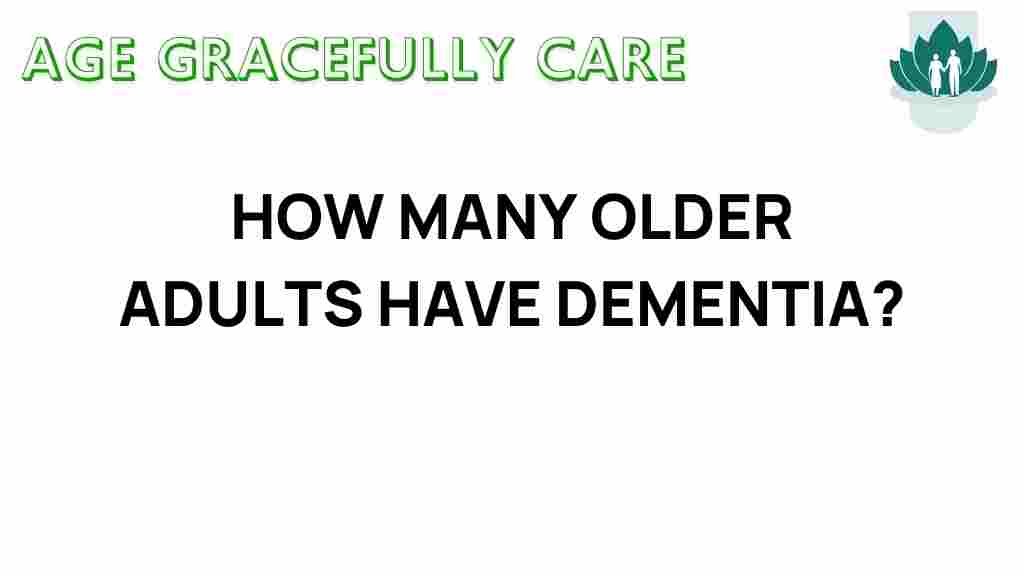Dementia: How Many Older Adults Are Affected?
Dementia is a growing concern in our society, particularly among older adults. As the aging population expands, understanding the prevalence of dementia becomes increasingly important. This article aims to unravel the mystery surrounding dementia, providing insightful statistics and highlighting the impact on mental health and healthcare systems.
Understanding Dementia and Its Impact
Dementia is not a single disease but rather an umbrella term that encompasses a range of cognitive decline disorders, including Alzheimer’s disease, vascular dementia, and Lewy body dementia. The most common form, Alzheimer’s, accounts for 60-80% of dementia cases. As our population ages, the prevalence of dementia is expected to rise, making awareness and understanding crucial for families, caregivers, and healthcare providers.
Statistics on Dementia and Older Adults
The World Health Organization (WHO) estimates that approximately 55 million people worldwide are living with dementia, with nearly 10 million new cases diagnosed each year. The majority of these individuals are older adults, typically aged 65 and above. Here are some key statistics:
- About 6.5 million Americans aged 65 and older are living with Alzheimer’s disease.
- By 2050, the number of people aged 65 and older with dementia is projected to reach 12.7 million in the United States alone.
- Globally, the prevalence of dementia doubles approximately every five years after the age of 65.
- Women are disproportionately affected, making up nearly two-thirds of those with Alzheimer’s.
The Aging Population and Cognitive Decline
As life expectancy increases, the number of older adults is on the rise. This demographic shift contributes significantly to the growing number of dementia cases. Cognitive decline is a common issue faced by older adults, impacting their quality of life and independence. Understanding the factors contributing to cognitive decline is essential for prevention and management.
Risk Factors for Dementia
Several risk factors are associated with dementia, including:
- Age: The most significant risk factor for dementia, with increased prevalence in those aged 65 and older.
- Family History: A family history of dementia can increase one’s risk of developing the condition.
- Genetics: Genetic mutations, particularly the APOE-e4 allele, are linked to a higher risk of Alzheimer’s disease.
- Cardiovascular Health: Conditions such as hypertension, diabetes, and high cholesterol contribute to cognitive decline.
- Lifestyle Factors: Smoking, sedentary lifestyle, poor diet, and insufficient mental stimulation can increase risk.
Healthcare Implications of Dementia
The rising prevalence of dementia poses significant challenges for healthcare systems globally. As older adults are diagnosed, there will be an increased demand for various healthcare services, including:
- Neurological Assessments: Timely diagnosis and assessment of cognitive decline are crucial for effective management.
- Long-term Care: As dementia progresses, many individuals will require long-term care services, placing a burden on families and healthcare providers.
- Support Services: Caregivers will need access to resources and support to manage the emotional and physical demands of caregiving.
Raising Awareness About Dementia
Increasing awareness of dementia is essential for early diagnosis and intervention. Communities can take proactive steps to educate themselves about the signs and symptoms of dementia. By fostering a supportive environment, we can help those affected by cognitive decline feel understood and valued.
Step-by-Step Process for Assessing Dementia
Identifying dementia requires a systematic approach. Here’s a step-by-step process:
- Recognize Symptoms: Look for signs such as memory loss, difficulty in performing familiar tasks, confusion with time or place, and changes in mood or personality.
- Consult a Healthcare Professional: If symptoms are evident, schedule an appointment with a primary care physician or a neurologist.
- Conduct Cognitive Testing: Healthcare professionals may perform tests to assess memory, problem-solving skills, and other cognitive functions.
- Brain Imaging: Imaging techniques like MRI or CT scans may be used to rule out other conditions that could cause similar symptoms.
- Discuss Findings: After assessments, the healthcare provider will discuss the results and possible next steps, including treatment options.
Troubleshooting Tips for Caregivers
Caring for someone with dementia can be challenging. Here are some tips to help caregivers manage this journey:
- Establish Routines: Consistency in daily activities can help reduce confusion and anxiety.
- Communicate Clearly: Use simple language and be patient. Non-verbal cues can also be helpful.
- Encourage Independence: Allow the individual to do as much as they can for themselves to maintain their dignity.
- Seek Support: Join caregiver support groups for emotional support and shared experiences.
Conclusion
Dementia is a complex condition that affects millions of older adults worldwide. As the aging population continues to grow, understanding the prevalence of dementia and its implications for mental health and healthcare is vital. By raising awareness, promoting early diagnosis, and supporting caregivers, we can improve the quality of life for those affected by dementia.
For more information on dementia and support resources, you can visit the Alzheimer’s Association website. Additionally, consider exploring local resources to enhance awareness and support within your community.
This article is in the category Health and created by AgeGracefullyCare Team
